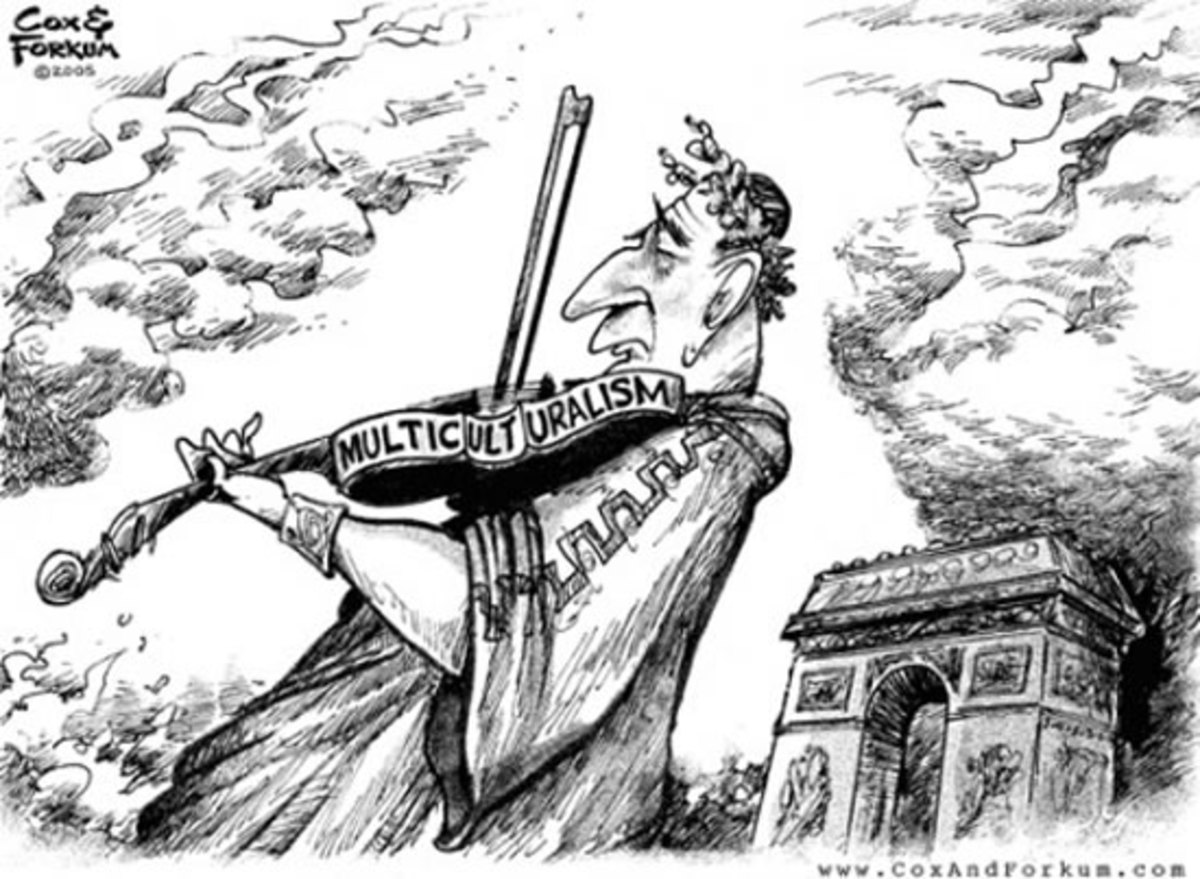How to Recognize Bad Legislation

Missouri SB 666 and Innocent reactions to it
Sometimes when a bad law is introduced, many good people have trouble recognizing that it is in fact a very bad law. How does this happen? I'll give you an example which is very important to me, because it could wipe out my family. But to most people, it may seem like a very innocent and perhaps even helpful law.
The law in question is Missouri SB 666. If you want to learn more about it, follow the link in blue in the previous sentence. I have written all about it on Pubwages, and this hub is not meant to replace that pub. In this hub I want to use the example of SB 666 to show how you can learn to recognize bad legislation, even when it does not immediately affect you and your family.
When I first posted on Facebook about SB 666 and provided a link, one of my Facebook friends, an intelligent, well meaning woman, whose opinions I respect, had something like this to say:
"Aya why is it a bad thing to require people to have permits for primates? Doesn't this ensure that the primates have a decent living environment and aren't being abused? Perhaps I am missing a bigger point though."
Well, to someone who is not involved, and who has never thought about it very deeply, that sounds on the surface, perfectly reasonable. To me, whose very life depends on it, it sounded insane. I replied along these lines:
"Because permits cost money, and the fee can go up, while my income is fixed. Because they will have the right to come into my home whenever they like, and inspect, and tell me to change things, and if I don't have the money to do so, I will have to give Bow up. Because if the person I want to give Bow to does not have that kind of money either, they will get to decide where Bow goes. The power to give permits is the power to tax and the power to tax is the power to destroy!"
To this day, I do not know whether I convinced my FB friend, and I do not know whether the words I chose, right then in the heat of the moment, were the right ones. But this is what I aim to do here: to explore the general principles that apply to legislation so that everyone can recognize a bad law when they see one, even if it is not aimed directly at them.
The General Principles of Legislation
I think that if ordinary people understood the simple principles behind bad legislation, they would be able to recognize bad laws in advance of their passage and even before they are promulgated.
What are the basic principles?
- Innocent Until Proven Guilty. No law should punish someone in advance for something he might do in the future.
- Equal Protection. No law should be passed that affects different people and groups of people differently from the way it affects other people or groups of people, including the practitioners of different industries, hobbies or professions.
- No Taxation and/or Regulation without Representation. There should not be regulations promulgated by unelected officials who are immune from being directly fired by the electorate.
You and I could probably think of a dozen other pet rules, but if we keep it simple, then it might be something that all reasonable people might be able to agree upon. I think that by recourse to the above three principles, anyone would be able to recognize 99% of bad laws.
Examples of Laws that Presume Guilt
Any law that is created for the purpose of preventing people from doing bad things in the future, when they have not done anything bad yet, is a bad law.
Can you think of laws like that? Most laws requiring people to be licensed and tested and regulated are such laws.
You need a driver's license, right? Because otherwise people who can't drive would be able to kill other people with impunity using their cars as deadly weapons. Why would we assume that people would do such a thing, minus a driver's license? Why would we assume that the common law torts of battery, assault, negligence and the common crimes of assault, battery, manslaughter and murder would not cover such offenses, if they occurred?
The answer that is normally given is that by then it will be too late and there would be no recourse against the wrongdoer. We have to license potential drivers, and we have to require them to carry liability insurance, if they own a car.
What is the result of this legislation? People have to prove they will not be guilty of using their cars as deadly weapons, instead of the state having to prove that they have done so. People have to pay insurance companies in advance for accidents that have not happened yet, instead of waiting to see if an accident does happen and who is at fault,
In the case of the driver's license, the very permit that was supposedly created to safeguard the public from the potentially reckless driver is now used as an identification card to keep track of the citizenry.
And in case you still think the purpose of licensing drivers is to keep bad drivers off the road, ask yourself this: why do some states, like Missouri, have "non-driver licenses"?
The TSA and the Things You Must Submit to At The Airport
At the airport, if you want to board a commercial plane, you are required to leave your civil rights at the door. You are presumed to be a terrorist until proven not a terrorist. You have to submit to invasive and humiliating searches, because you might be planning to blow up a plane.
A lot of my liberal friends, who do support drivers' licensing, do not suppport the TSA or the Patriot Act or the NDAA. But if you understand the principle that you are presumed innocent until proven guilty, then you understand that all these are bad laws.
The Principles Apply Equally to SB 666
In the same way that a driver's license is a means to judge people before they have hurt others and to make them pay in advance for any harm that they may do in the future, and in the same way the the driver's license program is really a way to keep track of people and of their movements across state borders, and in the same way that the law that created the TSA, the Patriot Act and the NDAA are bad legislation, Missouri SB 666 is also bad.
Missouri SB 666 requires one to carry very expensive insurance, presuming that you or your primate will hurt others. You are judged guilty before doing anything wrong. You are fined in advance of hurting others. The micro-chipping requirment is a way to keep track of the location of primate owners and their primates.
The onerous burdens that are placed on primate owners by this proposed legislation may seem like nothing, to someone who does not have to face them. But if you keep in mind all the other laws that violate the principle that you should be presumed innocent until found guilty, then any ordinary person can understand that this is a bad law.
Examples of Laws that Single Out Different People or Groups of People
Do you agree that people should not be discriminated against by the government based on race, religion, ethnicity, age or gender? Most people do agree. And yet some people support affirmative action, which specifically singles out particular races, ethnicities, ages and genders for different treatment.
Do you agree that it should not matter whether you are a professional or a laborer, and that the law should treat all the same no matter what they do for a living or how much money they have? Most people would agree, and yet many support state licensing of professions and state inspection of various industries. This means that people in different professions and trades are subjected to different rules. It means that the law can discriminate in favor of one person and against another, but someone not a member of that profession or industry might not even be aware of the discrimination.
Regulations that affect different professions, trades and industries in different ways have the effect of "divide and conquer" when it comes to the electorate's understanding of how the government is treating all of us. If it's not an industry we understand, we may not feel qualified to judge, and we might mistakenly think we are being protected.
Why do we license professionals? Oh, it's because they might do something bad. Back to the first principle of being presumed guilty. But why do we really license professionals and regulate industries? The real reason is to give some people a leg up in competition.
Take, for instance, health codes and inspections for restaurants. Ostensibly, it's to keep the general public safe. But what does it really do? It tends to destroy smaller businesses that cannot meet the financial burdens of such regulations, leaving bigger businesses less competition.
Placid Towers Explains How Restaurants are Affected by Bad Laws
Here is an excerpt from my first novel, The Few Who Count, that explains how singling out different industries and subjecting them to different regulations actually helps bigger businesses to get rid of the competition:
"My mother came from an Italian family. She had no education, but she could cook. When my parents married, they opened a restaurant. It wasn't particularly popular. It wasn't a fancy place. But there was always enough business to keep it going, to provide us with a moderate income. We had a clientele. There were people who came to eat there regularly. Some even every day."
Placid did not notice Hannibal's smile. He kept talking. The words streamed, as though a great force were pushing them forward. "It was in the south of Estville. When they just started it was right at the edge of the city. I was fourteen when Vanetti opened his restaurant. You know it?"
"I've heard of it."
"He wanted to organize a sort of self-regulatory organization for restaurateurs. He invited all the restaurant owners and managers in the city. He said Estville was a reputable city. One of the oldest. That our restaurants ought to do it justice. He spoke of the integrity of our business, and how it could be spoiled by one single restaurant not conforming with our overall high standards. He outlined a program to ensure high quality. Cloth napkins, roomier premises, fancy menus ..."
"How about the food?"
Placid laughed. "More sanitary facilities. Many left that first meeting and didn't join his organization. We couldn't afford the changes." Placid was coming near. He paced back and forth, came closer and closer to being within Hannibal's reach.
"Vanetti had friends in city hall. They made some changes in the Health Code. Among them, inspection of facilities and licensing. We could not afford the new licensing fee. We could not meet the new standards. My parents closed the restaurant."
Placid returned to his chair. Hannibal relaxed his back muscles. "And I suppose you robbed the restaurant to feed your starving family?"
"We weren't starving. My father got a job at one of the big restaurants. My mother didn't have to work. She stayed at home. You'll notice there aren't many family run eateries in Estville. Just the big fancy places and the chains."
"I don't get out much," said Hannibal.
Placid suppressed a smile. "My father didn't make much less working for someone else than both he and my mother made from their efforts in their business. Not much less. But they weren't the same. Nothing was the same after that ..."
What SB 666 is really designed to do
You might think that SB 666 is designed to keep the public safe from reckless primate owners and to keep non-human primates from being abused by irresponsible individuals. But just like restaurant health codes and all regulations over any industry, occupation or activity, the real purpose is to lessen the competition for certain large organizations that want a monopoly on primate ownership. Who will gain when I lose custody of Bow? Probably a big zoo or sanctuary that will be given ownership over Bow, free of charge. Will they treat Bow well? What do you think?
Bow and Sword Christmas 2006 in the Car

Examples of Laws That Create Taxation and Regulation Without Representation
Once a regulatory agency is given control over a particular industry, profession, or activity, an entire bureaucracy of unelected officials is often created and given the right to promulgate regulations which then become the law of the land without ever being voted on by our representatives. Because we cannot fire them, these "public servants" then become our masters.
Just glance through the massive CFR (Code of Federal Regulations) and you will see rule after rule after rule, which may or may not apply to you, and which if it does happen to apply, may be randomly ignored until such time as someone decides they don't like you and they want to cause trouble for you.
The Regulation Can Be Applied Only When Convenient
Having to Constantly Renovate Your House
In my case, one of the things that may happen to me is that the regulators will make inspections of my home, and at a whim they may be allowed to tell me that I have to rebuild or renovate a considerable portion of the structure. This could very easily bankrupt me.
I have in fact already invested considerable time, money and resources turning what was a lovely sunroom with a nice floor into a metal and cement cage. I did so because I understood that it was necessary, and I knew exactly what needed to be done. But can you imagine allowing someone who understands neither the requirements of chimpanzees nor the limitations of my budget to have a veto over my decisions?
Different phases in a chimp's life call for different arrangements

The Principles Are Few and Simple: Bad Laws are Easy to Recognize
By the three principles I mentioned above, any person should be able to recognize bad legislation. And yet very few do, because they insist on making things much more complicated.
The only person running for office who recognizes bad legislation every time he sees it that I know of is Ron Paul. That's why I'm supporting him in his run for the Republican nomination. Too bad he's not also running for the Missouri State legislature.
I know of some Missouri state Senate seats that will soon be vacant....
Copyright 2012 Aya Katz



